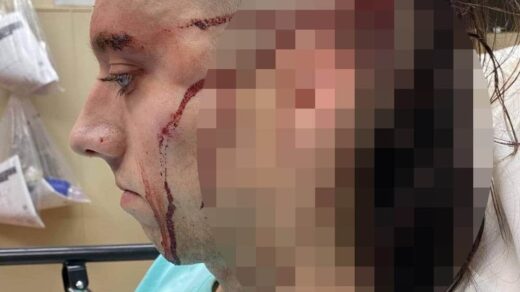Indiana Catholic School OK to Fire Staffer in Same-Sex Marriage: Appeals Court
Author: Trudy Ring

A federal appeals court has upheld a Catholic school’s firing of a guidance counselor because she’s in a same-sex marriage.
A three-judge panel of the U.S. Court of Appeals for the Seventh Circuit ruled Thursday that Roncalli High School in Indianapolis was within its rights in declining to renew Michelle “Shelly” Fitzgerald’s contract in 2018 after officials found out she was married to a woman, something that goes against Catholic doctrine. Fitzgerald, by then co-director of guidance, had been with the school 14 years and in her marriage for four. She sued, with the high school and the Catholic Archdiocese of Indianapolis as defendants.
The Seventh Circuit affirmed a 2022 decision by the U.S. District Court for the Southern District of Indiana that the school had the right to dismiss Fitzgerald. The district and appeals court’s decisions both relied on a “ministerial exception” from antidiscrimination law.
The U.S. Supreme Court ruled in 2020’s Bostock v. Clayton County that employment discrimination based on sexual orientation or gender identity was sex discrimination and therefore banned by federal civil rights law. But the high court makes an exception for faith-based employers.
It first recognized such an exception in 2012 and widened its scope in 2020, shortly after the Bostock decision. In one case that involved age discrimination and one on disability-based discrimination, the court ruled in 2020 that federal antidiscrimination laws do not apply to teachers and other staff at church-sponsored schools if instruction in religion is part of their jobs.
Fitzgerald argued that her duties didn’t involve religious instruction, but the Seventh Circuit opinion says she “played a crucial role on the Administrative Council, which was responsible for at least some of Roncalli’s daily ministry, education, and operations.” Last year, the Seventh Circuit upheld the dismissal of Fitzgerald’s co-director, Lynn Starkey, who was also in a same-sex marriage.
“Fitzgerald’s case is one of several percolating in federal courts that test the boundaries of the exception,” USA Today notes. “The stakes are potentially enormous, affecting not only support staff at religious schools but possibly nurses at religious hospitals.”
Americans United for Separation of Church and State, which is part of Fitzgerald’s legal team, denounced the ruling. “Religious extremists are waging a crusade to undermine basic civil rights and won a disturbing victory before the Supreme Court in the 303 Creative LLC v. Elenis case just two weeks ago,” said a statement from President and CEO Rachel Laser. “Shelly Fitzgerald’s case was another line of attack. These religious extremists are trying to expand a narrow, commonsense rule — meant to allow houses of worship to select their own clergy according to their own faith — into a broad license to circumvent civil rights laws and to discriminate.
“Shelly Fitzgerald, like most employees at religious organizations, wasn’t hired to minister to students or to preach the Catholic religion. She was hired to provide secular guidance to students seeking to get into college. She should not have lost her civil rights simply because the secular work she performed was done at a religious school.”
Laser commended Fitzgerald “for courageously speaking up on behalf of all people vulnerable to discrimination in the name of religion. Shelly and brave people like her are on the front lines warning the American people about the very real threats we face from a shadowy network of religious extremists working to turn religious freedom from a shield into a sword to harm others and violate their rights.”
Becket, a nonprofit law group defending the school and archdiocese, praised the ruling. It “is commonsense: Decisions about who conveys the Catholic faith to Catholic school children are for the church, not the government,” Joseph Davis, counsel at Becket, said in a press release. “Many parents entrust their children to religious schools precisely because those schools help to pass on the faith, and this victory ensures they remain free to do so.”
Fitzgerald has 90 days to appeal the ruling to the Supreme Court. It’s not clear yet if she will do so.
From Your Site Articles
Original Article on The Advocate
Author: Trudy Ring




